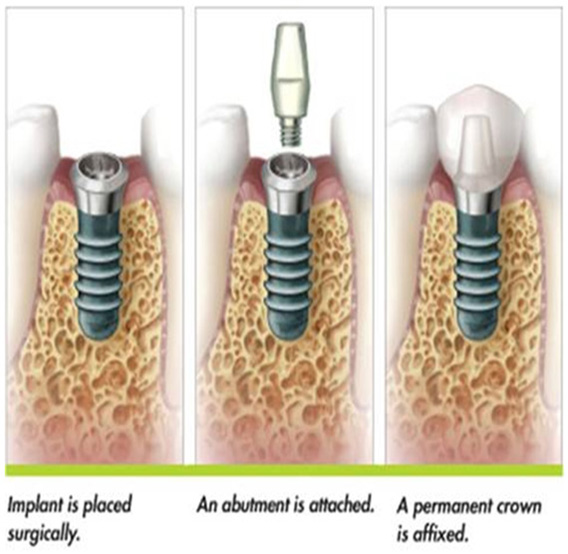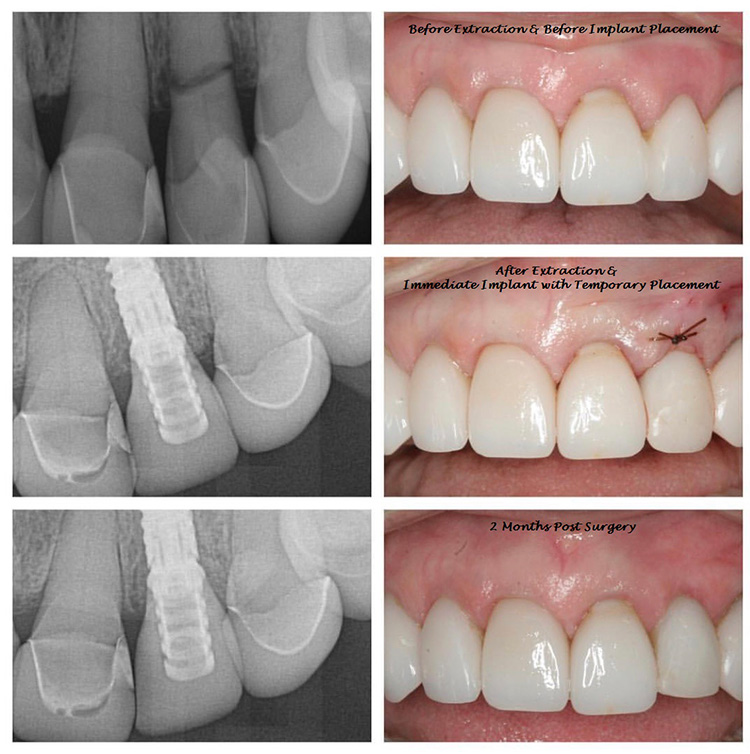
Single Implant Placement
Healthy teeth should not be underestimated. Missing teeth can be caused by a variety of factors from congenital defects to just general wear and tear as we age. A missing tooth provides for a smile that feels empty and usually has an adverse psychological effect. Modern dental technology can make missing teeth a thing of the past.
About Single Tooth Implants
Traditionally, a dentist will place a bridge that is anchored on neighboring teeth. Drastically, this requires grinding down these neighboring teeth to accommodate the cementing of the bridge. A single tooth implant is revolutionary in comparison. A single tooth implant replaces a missing tooth without damaging neighboring teeth. It involves a full replacement of the whole tooth, including the roots. A single tooth implant anchors directly into the bone and is fitted with ceramic crown so that it provides maximum aesthetics and functionality.

The Procedure
Your single-tooth replacement will begin with an examination. The examination may include an x-ray or CT scan to assure you have enough bone to anchor the implant and to obtain a precise location for the implant.
The placement of the implant is a two-stage process. In the first stage, a titanium implant that looks like a small screw, is placed. This screw is set and left to be for three to six months to give it time to form with the bone, which creates a titanium/bone anchor.
The next phase involves the creation of a new ceramic crown. It is attached using a small metal post called an abutment. After a brief adjustment period, this new crown will feel natural.

The Recovery
After the implant procedure, you may experience some swelling, bruising and bleeding. You will be prescribed pain medications. Your diet will be limited to soft food and liquids for the first week. Hot food and liquids should be avoided during the first 24 hours.
After the replacement, as with natural teeth, the patient’s commitment to good oral hygiene is imperative to the dental health of the new implants. Daily flossing and brushing are necessities, as is the cessation of smoking. Unsurprisingly, poor hygiene and smoking are both highly associated with infection and failure of the implant. It’s simply not worth not doing your best to allow your implant to succeed.
What You Can Expect
After your single-tooth replacement, you can expect natural results that both look and feel like your own tooth. This should help with talking, eating, and how you generally feel.
Call our office today at 818-584-1841 for a consultation to review enhancing your smile and your oral health.
